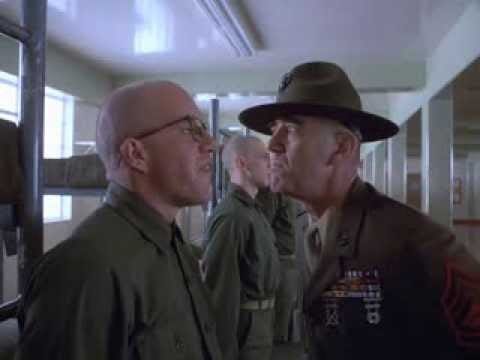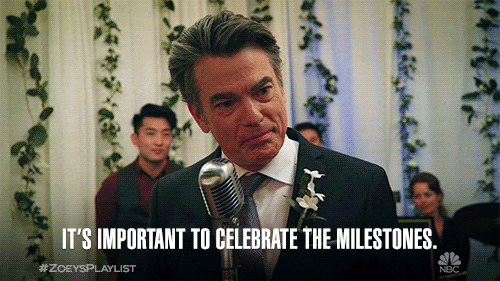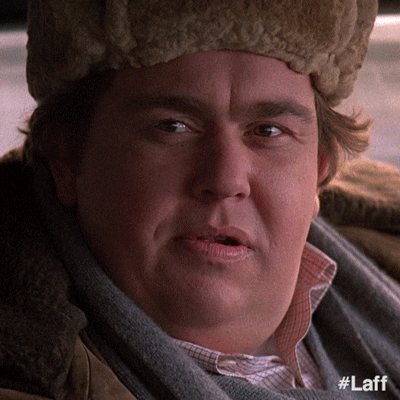Milestones, the Examined Life, Approaching Sage Status, and Enjoying the Afternoon of My Existence
I’m feeling just fine, thanks. With more than sixty years behind me and a significantly fewer number of them in front of me, I am at peace with myself, my choices, and my life
In my essay,
mention had been made that not much time is spent by me on reflection, and it is true, for the most part with the exception of the occasional milestone event. In April of this year, when said essay was published, the observation of a significant birthday was the driver behind it. On this occasion, it is the observation of another significant event that is giving me cause to reflect, and write this one.
Whatever one wishes to call it – introspection, looking back, year (or other span of time) in review – reminiscing holds little value, for me. That is not to say that it is of no benefit, because that is not true.
If I am to engage in the exercise, it must be with one of two purposes clearly in mind. Almost always, one is to identify what might have been done better, or differently – and resolve to apply the lesson(s) learned when similar circumstances arise. If I look back without such a purpose, the result more often than not is criticism and self-condemnation so harsh it makes Gunnery Sergeant Hartman
look like Barney, of Barney and Friends.
Suffice it to say that I struggle with self-loathing – but the main reason for my aversion is because all too frequently, it has been a revisiting of regrets. Events now past, outcomes, and history that will not be changed no matter how frequently I replay the tape in my head.
The other purpose for looking back is to identify that for which to be grateful, to appreciate providential circumstances, acts of kindness, and graciousness that might have escaped one’s attention, or to recall them and be thankful, yet again.
Regardless of the purpose, it is crucial to have a limit, or a stopping point set in advance and a commitment that once the review is finished, to focus on looking forward1 so that one can seize the day,
be present, and able to fully enjoy and appreciate the good to come.
The lyrics of the song, “Changes in Attitudes, Changes in Latitudes”2 are appropriate on more occasions than one might imagine, but seldom more so than here:
Oh, yesterday's over my shoulder, so I can't look back for too long
There's just too much to see waiting in front of me and I know that I just can't go wrong
This, to prevent one from staying too long, or even living in the past. It’s far too easy to get stuck there, especially if the memories are warm and fuzzy.
Most of us are able to avoid that trap by being about our lives – but each one of us knows or knows of that guy who hasn’t really been able to leave behind his glory days of college, or in most cases, high school. We see his life, and we can’t help but feel bad for him partly because we know that for us, high school wasn’t all that great, but also because we know there is nothing we can do to help him.
I’ve always felt that this song was – is – a bit of a cautionary tale against spending too much time in reflection...
You could've done anything, if you'd wanted
And all your friends and family think that you're lucky
But the side of you they'll never see
Is when you're left alone with the memories
That hold your life together like glue3
So, what’s all this, then? Why the elaborate preamble?
Aside from wondering just where the hell September has gone, the observation of another milestone will be upon me – October 8, the first anniversary of our wedding. There is now so much for which to be thankful – there’s no way it can ever be expressed – even poorly. I am simply going to say that each and every day, I begin my morning prayers with gratitude to my Lord that the boundaries have fallen in pleasant places for me.4
Granted, none of this would be the case had I not ended my previous marriage – an act over which I have grieved, mourned its loss, and have borne the guilt and shame in the years that followed – and this will be the last it is ever mentioned, here.
It also would not be the case had I not wandered so far afield of my faith as to begin to wonder if I would ever find my way back – at this point, it would be best, dear reader, if you would read the following in the voice of Morgan Freeman:
…but he would not find his own way back – rather, he was found, brought back, and restored to fellowship by a fellow believer.
The fact that my life is now overflowing with blessings – in spite of my tendency toward self-destruction – is a testament to my Lord’s promise to make all things work together for the benefit of those who believe in Him5.
Earlier, I wrote that looking back is of almost no value because on so many occasions previous, it has been little more than a revisiting of regrets, and that is true, to a large extent. However, it is worthwhile if for no other reason than in so doing, one can challenge one’s own convictions, values, and beliefs. As a result, one is more confident in them, or some inconsistency or incongruity has been identified resulting in perspective being modified, or perhaps one’s view has changed – in other words, there has been some growth.
In any event, what one is doing (whether conscious of it or not), is examining one’s life – which brings us to this:
The unexamined life is not worth living.
–Socrates (Plato)
It is only in examination your life that you can reach one of two conclusions:
1. Your life is, in fact, worth living.
2. Your life is not worth living.
The second should not be considered as a condemnation of you as a person or your character, but if valid, then it ought to be a wake-up call – it ought to spur a motivation to make some changes, to live for something other than your own pleasure. The only juncture at which it is too late to make a change in your life is when your time is up. Until then, there is still opportunity to change the world by making even a small change in your own.
All of us have heard this quote at one time or another. If your experience is at all like mine, it sounds very intellectually deep, and anyone citing it seems highly intelligent, but $100 says that individual has no more idea what it actually means than does PiGuy’s Husky Dawg. In the interest of full disclosure, I had no idea what it meant either, until I began writing this essay.


Like any other citation invoked to support or to give credence to a claim, an opinion or point of view in a debate, a discussion, or an essay (such as this one), context is critical.
The words were written by Plato in his Apology6 which is essentially the transcript of the trial of Socrates, and are the defence he offered on his own behalf. Practising a type of philosphy which is now known as the Socratic method, it was so disruptive of the status quo, he was put on trial for it where his fellow philosophers made the following accusations:
The worse argument is made to be the stronger
[It] teaches about things in the sky and things below the earth
[It] does not believe in the gods and as a result, is corrupting the young
The resource cited in the corresponding footnotes asserts that the actual meaning of the quote is found in the very first paragraph of that expressed by Socrates, himself, in his own defence.
…what do I deserve to suffer or to pay because I have deliberately not led a quiet life but have neglected what occupies most people: wealth, household affairs, the position of general or public orator or the other offices, the political clubs and factions that exist in the city?
In other words, he’s on trial for being different, for not thinking like everyone else, for thinking in a manner that is contrary to that of the majority.
Socrates doesn’t believe in living a ‘quiet life’, that is one that exists with a quiet mind. For him this quiet life is one that would require him to be dishonest – to keep silent the questions that enter his mind.
Socrates has witnessed the unexamined life in the city he lives and knows he cannot live it. In fact, for him the thought of doing so is worse than death. Rather than conform to the popular opinion that death is the worst of all things Socrates examines this idea critically.
Death for Socrates is an unknown and therefore he has no fear of what he does not know. He says ‘to fear death, gentleman, is no other than to think oneself wise when one is not, to think one knows what one does not know’. For Socrates an examined life means ‘I do not think I know what I do not know’.7
I submit that Socrates rejects the unexamined life that he has seen others living not because it is beneath him, or because he considers himself to be better than anyone else, he just knows it isn’t one he could lead and have a clear conscience. I further submit that these are the more every-day, mundane lives led by the vast majority of ordinary citizens of Athens, or of those on the islands of Patmos, Corfu, et al.
They are the lives of those who did most of the working, living, dying, and paying of taxes in ancient Greece. Each not simply for its own sake but that their families, their children, and their community would benefit from such. As there is no way to know that lives such as these remained unexamined by those living them, they are, therefore, no less noble than those led by philosophers such as Socrates, Plato, or even Meletus, his chief accuser.
What I find to be most remarkable, though, is Socrates’ humility:
I do not think I know what I do not know.
For us, the unexamined life gives no thought of wisdom, or of the good. It is a life preoccupied with bread and circuses. It is a life with no moral center, that stands for nothing but constantly seeking carnal pleasures of the flesh. It is life lived as an animal.
Incidentally, Socrates isn’t saying anything new, here – Solomon warned of the unexamined life long before Socrates came on the scene.8 I dare say that far too many (if not all) of the few who would seek to rule not with the consent of the governed, but over and instead of the consent of the governed, are living unexamined lives.
Over the course of one’s life, one comes to realize what matters, and what does not. It is largely a function of reaching a certain age later on, but that isn’t always the case.
It isn’t an epiphany, just coming to terms with the fact that time is precious, and anything that threatens to waste it is simply not tolerated.
It isn’t necessarily wisdom, either, because while some wisdom is gained over a lifetime of bad decisions and poor judgement, it is only thus if one learns from those bad decisions and poor judgement. Sadly, far too many do not.
Over several decades now, it has become quite vogue to describe damn near any type of growth or development as a journey. This is not inaccurate, but it has been used so often as to become a source of annoyance, to me. To my way of thinking, it is now somewhat akin to graduation ceremonies. Bob Parr (oka Mr. Incredible), put it best:
From 00:50:00 to 01:03:00
Nonetheless, let me not disparage instances where it is appropriate. In his book, The Masculine Journey9, Robert Hicks defines the six stages of manhood as follows:
The Creational Male – created for a distinct purpose.
The Phallic Male – the sexual male at his most primary level.
The Warrior – strength, a fighting spirit, competitive nature, in the arena, doing battle, conquering, prevailing over adversity.
The Wounded Male – where he begins to understand the needs of those around him.
The Mature Man – purposeful with a high regard for the dignity of others, a balanced understanding of the truth, pursues that which is right even if contrary to convention.
The Sage – the wise, fulfilled man with nothing left to prove and in full command of his soul, the time of most significant contribution.
Notice that in the first four stages, he is a male – only at the fifth stage, is he a Man. This is significant – only in maturity does a male – a guy – become a man. He becomes a man. In the book, it is made clear that advancement through any of the stages is not automatic, is not by default, is not necessarily a function of age. It is possible for progress to stall at any given stage.
I am exiting the stage of The Mature Man, and entering that of The Sage.
Professionally, there has never been a time more fulfilling than the present. The value I create – to my employer, the client, the manager to whom I report directly, others with whom I interact, and my co-workers – is evident and on display every day. My role as a technical team lead requires that I be a mentor as much as a technical resource, and serving as a mentor is infintely the more rewarding.
I find that I am providing guidance in how to comport one’s self as a professional in communication, appropriate conduct in the workplace and outside of it when attending business functions, and maintaining perspective in the face of seemingly unrealistic expectations. These are young men and women mostly in their thirties, and it is with a bit of bemusement that I find myself reminding some of them that while the work we do is important, there are no lives at stake. I’m sure the same was expressed to me when I was roughly the same age, but without effect.
I have been hired and fired by some of this nation’s finest and largest enterprises, and by many of its worst. What I could not see with every painful and embarrassing discharge – some deserved, some not, some just a function of the industry – is that all of it would prove to be valuable to me in my current capacity.
It isn’t so different in my personal life, either. Yes, most of the wounds have been self-inflicted, but by the grace of God, I’m still here. There is opportunity to be the husband my wife needs me to be, the husband that I want to be (she makes it easy); a grandfather-like figure to her grandson and granddaughter, and perhaps even some lasting impact through the essays I write and publish, here.
There was a time when I defined my value strictly by the economic contribution afforded me by my job. I thank God that is no longer the case. Ergo, as long as it is called today I will live, and live life to the full – and when the time comes, I will shuffle loose this mortal coil the same way.
The people I have most admired are those who simply enjoy being alive. They don’t waste time, but they aren’t so driven that a nap in the afternoon isn’t every bit as beneficial as if they had wiped out polio. They are the ones who come to mind when I listen to the song, “He Went to Paris”. I like to believe it is for them it was written, and it’s just one reason I love this passage:
Through 86 years of perpetual motion
If he likes you he'll smile then he'll say
‘Jimmy, some of it's magic, some of it's tragic
But I had a good life all the way’10
So how do I wrap all this up?
I am exceedingly glad that this first anniversary of our wedding, that observing the first day of our life together affords me the opportunity to recognize and be grateful for the blessing that is my wife, and all that comes with being married to her. I hate to imagine how my life would be, otherwise.
Thank you, dear reader, for your indulgence.
Until next time…
https://www.bible.com/bible/111/php.3.13
“But one thing I do: Forgetting what is behind and straining toward what is ahead”
https://genius.com/Jimmy-buffett-changes-in-latitudes-changes-in-attitudes-lyrics
https://genius.com/The-the-this-is-the-day-lyrics
https://www.bible.com/bible/111/psa.16.6
“The boundary lines have fallen for me in pleasant places; surely I have a delightful inheritance.”
https://www.bible.com/bible/111/rom.8.28
“And we know that in all things God works for the good of those who love him, who have been called according to his purpose.”
https://liberalarts.org.uk/the-unexamined-life-is-not-worth-living/
https://liberalarts.org.uk/the-unexamined-life-is-not-worth-living/
https://www.bible.com/bible/111/ECC.INTRO1.NIV
https://www.betterworldbooks.com/product/detail/the-masculine-journey-9780891097334
©1993 NavPress
https://genius.com/Jimmy-buffett-he-went-to-paris-lyrics








Happy Anniversary.
I envy the fact that you seem to have made peace with where you’re at and how you arrived there. I’ve not been able to do that. Fortunately my wife has been able to push the levers at various times throughout the years to keep me out of the ditch for the most part. It’s a work in progress. Happy Anniversary.